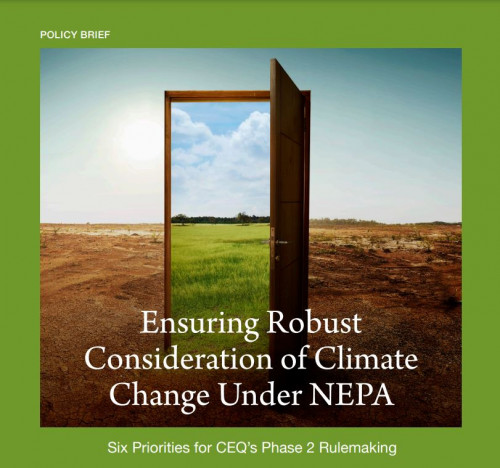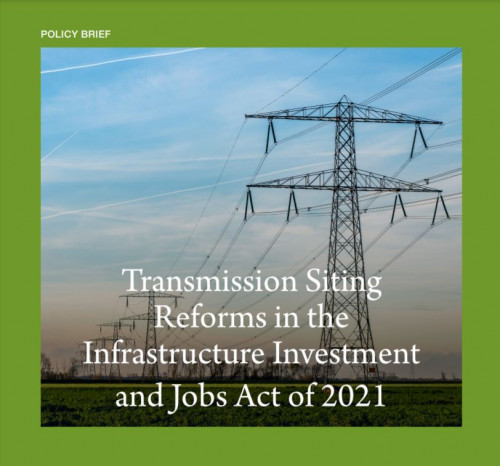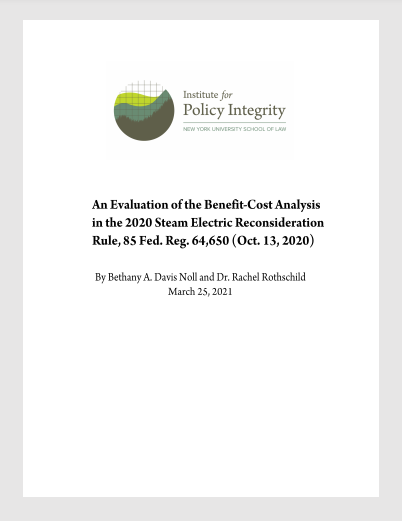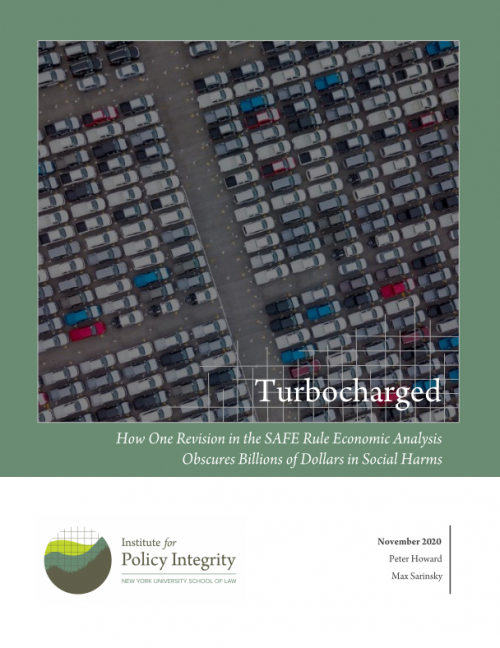The Institute for Policy Integrity produces a variety of publications. Our research reports develop in-depth research on our core issues, while our policy briefs and issue briefs provide focused analysis on more timely or particular topics. Our academic articles and working papers offer original scholarly research and analysis from established experts as well as fresh new voices.
Latest Publications
-
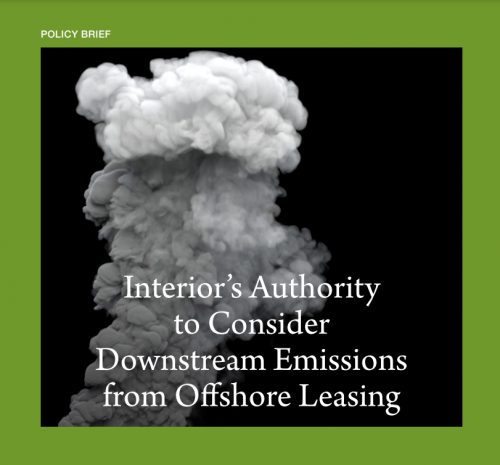
Interior’s Authority to Consider Downstream Emissions from Offshore Leasing
In its proposed Outer Continental Shelf oil and gas leasing program for 2023–2028, the Bureau of Ocean Energy Management (BOEM) claims that it cannot consider downstream greenhouse gas emissions when setting leasing policy because of a 2009 D.C. Circuit case, Center for Biological Diversity v. Department of the Interior (CBD). This Policy Brief explains that BOEM misreads CBD, which held only that the Outer Continental Shelf Lands Act (OCSLA) does not require the agency to consider downstream effects. The Policy Brief further explains that neither CBD nor any other case law bars BOEM from considering downstream effects and that consideration of such effects is in fact consistent with the text, legislative history, and regulatory history of OCSLA.
-
Ensuring Robust Consideration of Climate Change Under NEPA
Six Priorities for CEQ’s Phase 2 Rulemaking
In April 2022, the Council on Environmental Quality (CEQ) finalized a limited, “Phase 1” rulemaking to restore several longstanding features of the regulations that guide agency assessments under the National Environmental Policy Act (NEPA) which CEQ had removed in 2020. In that rule, CEQ reaffirmed its intentions to further revise the regulations to better ensure that agencies make decisions that “advance environmental, climate change mitigation and resilience, and environmental justice objectives.” This policy brief outlines six simple regulatory revisions that CEQ should prioritize for its “Phase 2” rulemaking to improve consideration of climate change during environmental review.
-
Transmission Siting Reforms in the Infrastructure Investment and Jobs Act of 2021
This policy brief highlights Infrastructure Investment and Jobs Act (IIJA) provisions that are relevant to transmission siting, summarizes the changes they effectuate, and describes important implications of those changes for efforts to develop more interstate transmission capacity. It then offers a brief assessment of the IIJA’s overarching significance to such efforts, including by comparing them to a more ambitious legislative alternative.
-
An Evaluation of the Benefit-Cost Analysis in the 2020 Steam Electric Reconsideration Rule
85 Fed. Reg. 64,650 (Oct. 13, 2020)
In its analysis of the 2020 Steam Electric Reconsideration Rule, the Environmental Protection Agency failed to adequately provide quantitative estimates for numerous harms from steam electric power plants' wastewater streams and drew conclusions about the rule’s impacts that are undermined by a fair assessment of unquantified impacts. Our report identifies flaws in the 2020 Rule and details changes the agency can make to significantly improve its benefit-cost analysis.
-
Turbocharged
How One Revision in the SAFE Rule Economic Analysis Obscures Billions of Dollars in Social Harms
This report is part of a series that documents how the assumptions underlying The Safer Affordable Fuel Efficient (SAFE) Vehicles Final Rule for Model Years 2021–2026 Passenger Cars and Light Trucks are skewed to make the rule look less harmful than it actually is. In this report, we focus on the rule’s estimate of vehicle sale price elasticity, which substantially inflates the rollback’s effect on new vehicle purchases.

